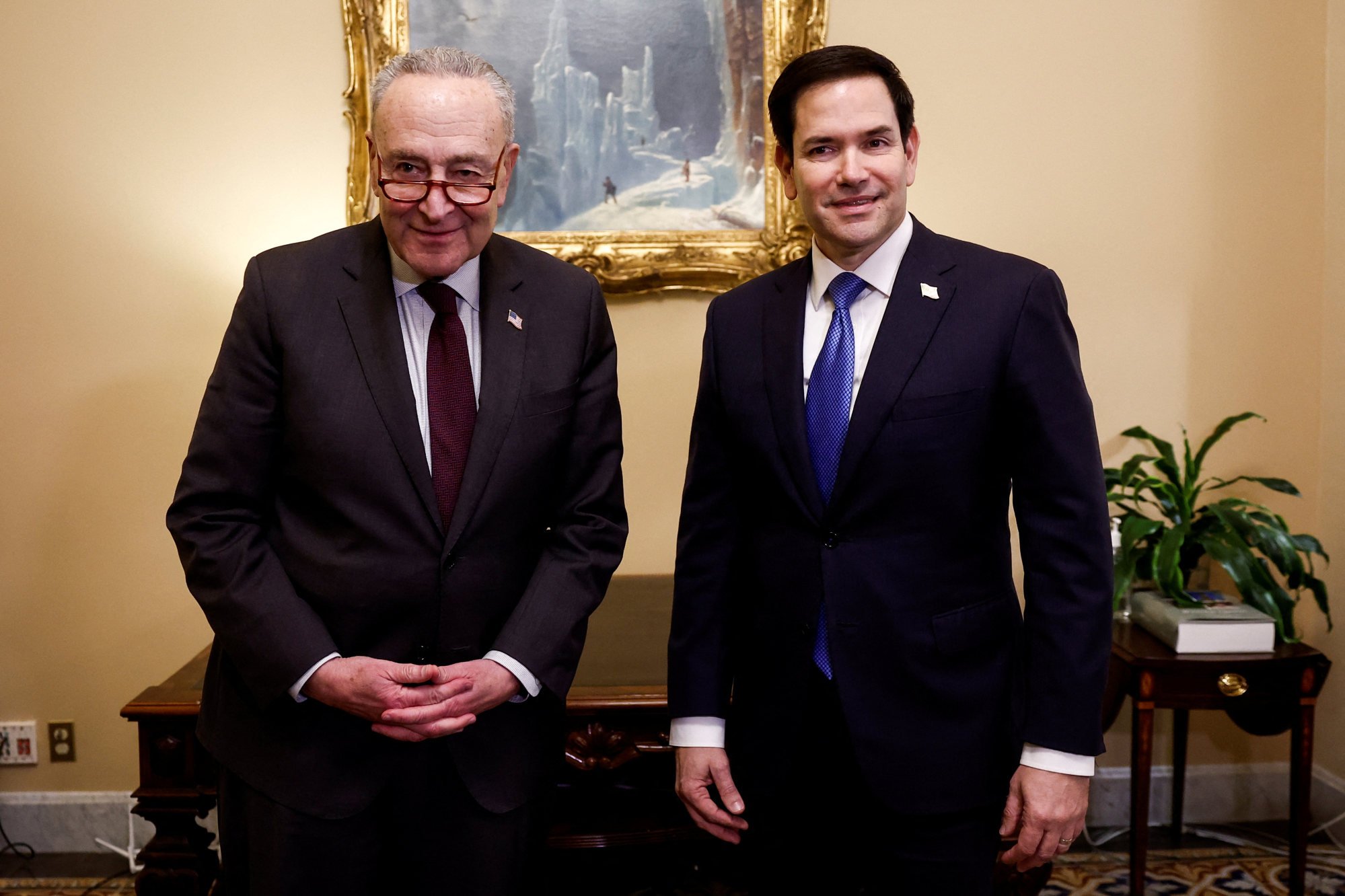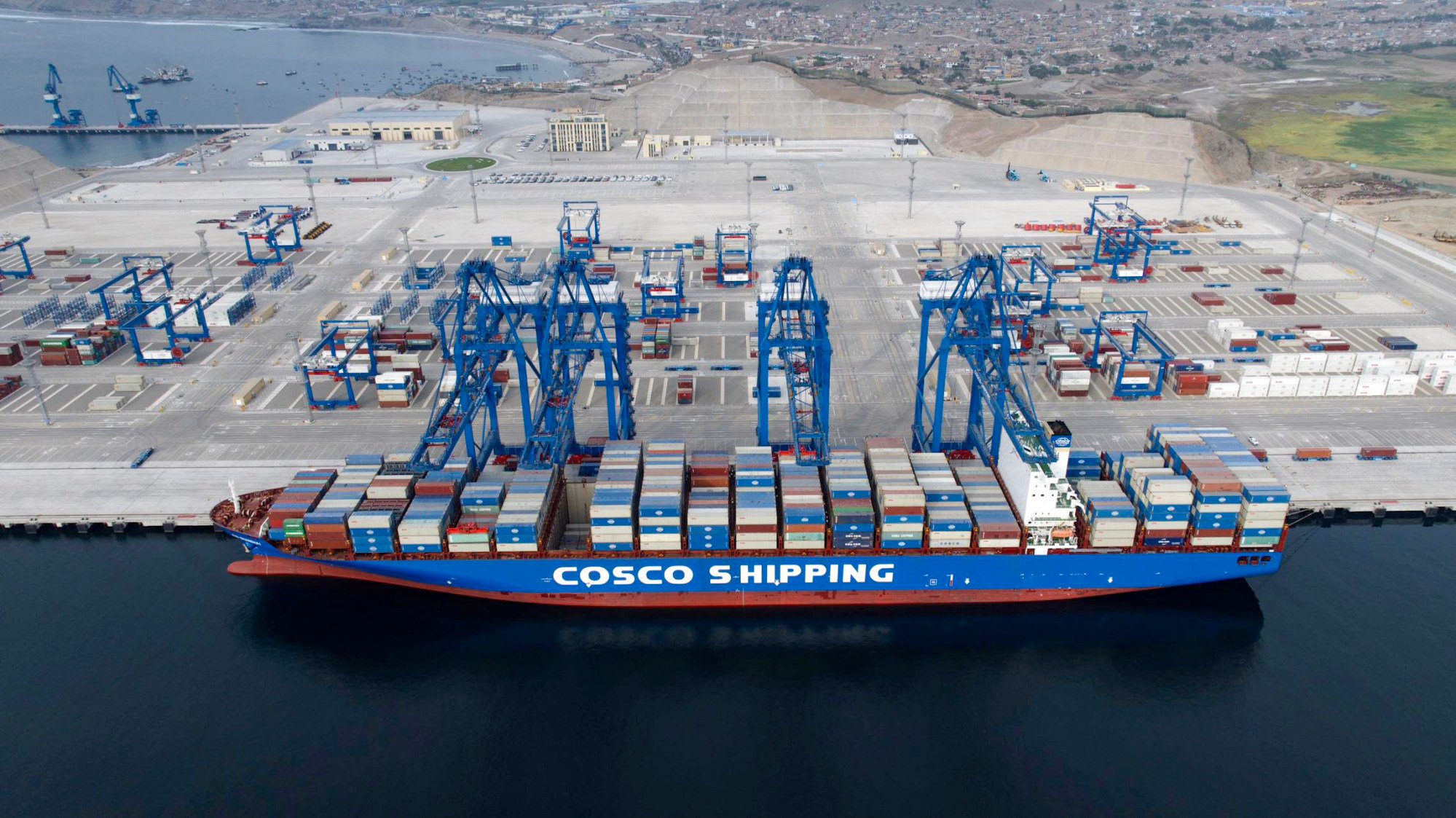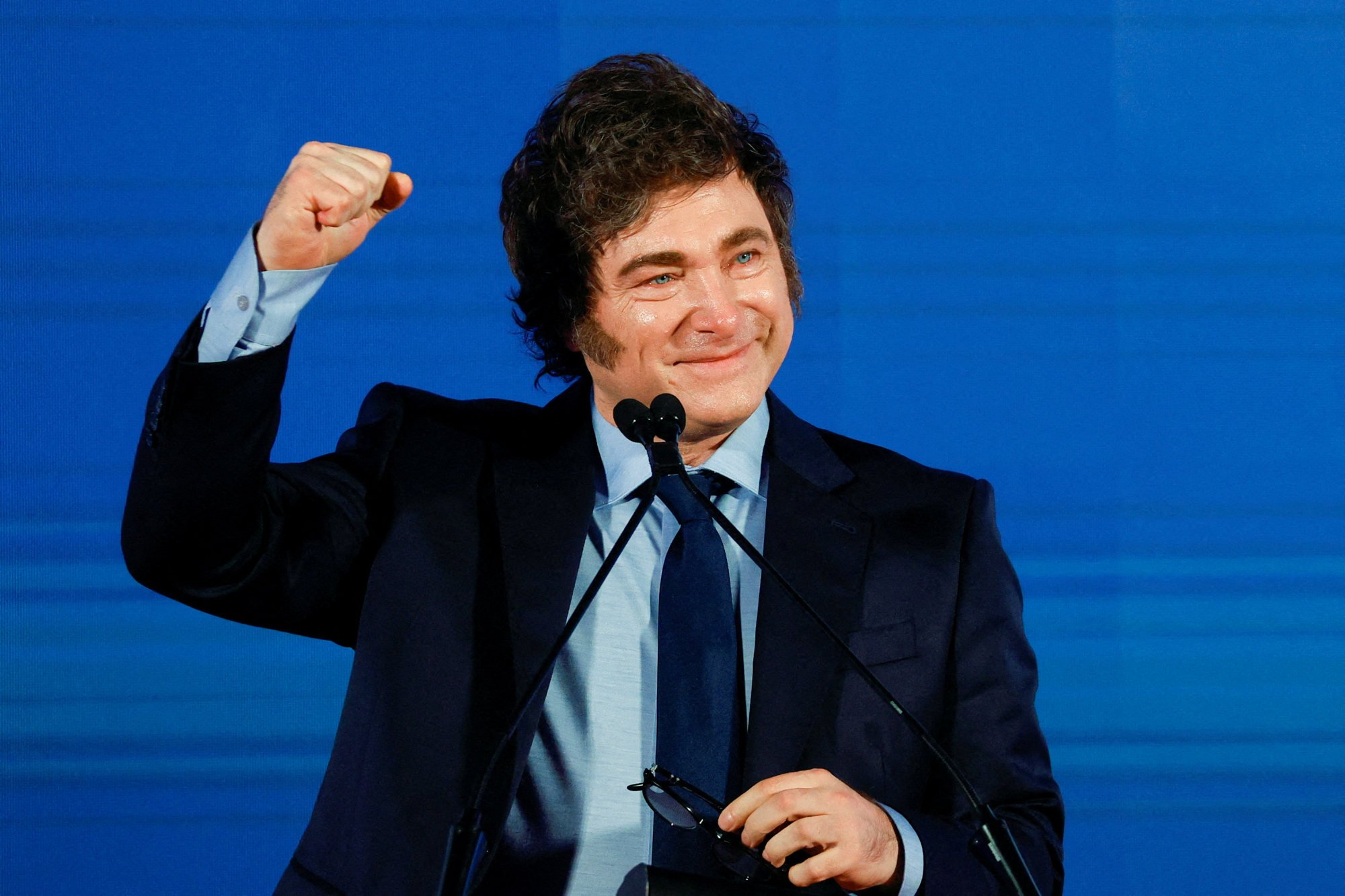When Donald Trump emerged victorious from the US presidential election in November, some at Brazil’s Ministry of Foreign Affairs lamented the result but none professed surprise.
For months, officials and analysts linked to the ministry had prepared for the outcome, anticipating the former president was the favourite to win the White House. And the prevailing view was that any alarm was unwarranted, a senior diplomatic source said.
Many forecast that Trump’s Latin American agenda would likely focus on combating drug trafficking and illegal immigration, as it did during the president-elect’s first term. These issues, they said, can create friction but also allow for engagement on broader matters.
Do you have questions about the biggest topics and trends from around the world? Get the answers with SCMP Knowledge, our new platform of curated content with explainers, FAQs, analyses and infographics brought to you by our award-winning team.
“That hope collapsed exactly eight days after the US elections with the announcement of Marco Rubio as secretary of state,” the diplomat said, referring to Trump’s choice of the Cuban-American senator to serve as the State Department’s first Hispanic leader.
“Our initial impression is that pragmatism in matters of trade or diplomacy could be affected by Rubio’s ideological leanings,” he added.
Assuming he is confirmed by the Senate after Trump takes office, which is all but assured given that Republicans will control the chamber, Rubio will oversee Washington’s relations with a region where China has made significant inroads, diplomatically and economically.
That has raised concerns by US officials including General Laura Richardson, head of the US Southern Command, that Beijing is undermining Washington’s interests in a region that is traditionally seen as within America’s sphere of influence.

Throughout his US congressional career, Rubio has been known for bellicose statements against China and frequent commentary on Latin American politics. However, analysts are split over whether he will adopt the same approach as secretary of state.
In 2021, for instance, Rubio in Washington hosted and posed for photos with Chilean far-right politician Jose Antonio Kast, a presidential candidate at the time and admirer of the days when the South American country was a dictatorship.
The senator also once called Colombian President Gustavo Petro an “agent of chaos” and has been a vocal critic of leftist dictatorships in Cuba, Venezuela and Nicaragua.
In 2023, Rubio raised eyebrows in Brasilia after penning an op-ed for The Epoch Times, a US-based newspaper supportive of Trump and aligned with Falun Gong practitioners – a spiritual sect outlawed by Beijing – criticising Brazilian President Luiz Inacio Lula da Silva for sympathising with China.
“[US President Joe] Biden must take a firm line with Brazil’s new president, holding Lula to account for his friendliness towards the CCP – as well as other bloody-handed dictatorships,” Rubio wrote, referring to China’s Communist Party.
Months later, Rubio took to social media to blast Lula for “bowing down to China’s genocidal regime”.
Recently, the senator from Florida sent a letter to Biden, accusing his administration of failing to enforce the US-Mexico-Canada Agreement and allowing China to exploit the trade pact between the three countries.
Rubio co-sponsored a bill requiring the US Treasury Department to report to Congress on China’s “coercive tactics” at the Inter-American Development Bank and urging the US to use its sway to boost transparency and “counter China’s growing footprint” in Latin America.
He was also a sponsor of the Western Hemisphere Security Strategy Act, requiring US secretaries of state and defence to submit a strategy within 180 days of assuming office to strengthen US diplomatic and security efforts throughout the region.
The bill called for increased military training exercises with partner countries to tackle issues like drug trafficking and transnational crime.
“There is no greater threat in our region than the growing meddling of Russia and China in Latin America and the Caribbean,” Rubio said at the time.
In recent weeks, the Post reached out to foreign ministries and government officials in nine Latin American countries – Argentina, Brazil, Chile, Colombia, Ecuador, Mexico, Panama, Peru and Uruguay – to ask how they were responding to Rubio’s nomination.
None was willing to comment publicly, with several saying it would be inappropriate to issue statements before Rubio’s Senate confirmation hearings.
But privately some diplomats voiced unease. Many said they were focusing on crafting a strategy to engage Trump and navigate dealings with his future top diplomat.
At least four policymakers from these countries expressed concerns that if Rubio were to continue the approach he took in Congress at the State Department he might pressure governments in the region to choose sides between Washington and Beijing.
Francisco Urdinez of the Millennium Nucleus on the Impacts of China in Latin America and the Caribbean, a Chile-based research initiative, said the nomination had sparked anxiety over economic dependence on China and what it might mean for relations with the US in the coming years.
He noted that while many countries navigate diplomacy with “carrots and sticks”, Rubio appeared to rely more on the latter.
“Dependence on China is so entrenched that even some far-right politicians recognise there are red lines no one dares to cross, such as questioning human rights in China or addressing Taiwan and Hong Kong,” Urdinez explained.
In a region facing an annual infrastructure gap of more than US$150 billion, he added, politicians must show voters that they are fostering development.
However, “the US does not have the same control over capital forces as China”, Urdinez continued, saying: “It cannot mobilise private companies to take on risky investments for political reasons.”
“And the tools of aid and bilateral cooperation at their disposal like the Ex-Im Bank [Export-Import Bank of the United States] and the DFC [International Development Finance Corporation] have limited budgets and are notoriously slow in approving credits and projects.”
Urdinez also said the strategy of publicly criticising China-friendly leaders and threatening them with tariffs and sanctions might yield short-term gains but could erode relations in the long run, giving rise to “a renewed sense of American bullying”.

Bruna Santos of the Wilson Centre’s Brazil Institute in Washington said she expected Trump to use punitive measures to dissuade countries in the region from accepting investments in areas such as power grids, 5G networks and ports.
She pointed to remarks by Mauricio Claver-Carone, a close Trump aide and part of his transition team who in November told Bloomberg the president-elect was considering a 60 per cent tariff on goods traded through Peru’s deepwater megaport in Chancay, built under China’s Belt and Road Initiative and inaugurated in November.
A former IDB president, Claver-Carone said tariffs on Chancay would discourage the practice of transshipment, when goods enter a territory and are later re-exported to their final destination at lower tariffs.
Tariffs would also deter “Latin American countries from getting closer to the Chinese regime and allowing the construction of infrastructure in their countries”, she added.
“There is a group of Republicans who still view Latin America through the lens of the Monroe Doctrine and the region as their ‘backyard’,” Santos said.
“If this is now adopted concerning Beijing, I think it could provoke mixed reactions,” she added. “Some countries might indeed move closer to the US, while others could see this as a reason to diversify their alliances or even seek deeper relations with China.”
In the same article for The Epoch Times critical of Lula’s close ties to China, Rubio described the relationship as partly arising from the US lacking tools to finance development in the Global South, Santos noted.
This perspective could signal that Rubio sees alternatives beyond mere diplomatic pressure, she added, suggesting it would be “very positive if there is a vision” not only from Rubio but those who will comprise the National Security Council “that this region can serve as a strategic reserve for the US”.
“There are vast investment opportunities related to nearshoring, for example, which could bring strategic convergences and go beyond this reactive clash of simply counterbalancing China’s influence,” she continued.
Yet Santos believed Brazil’s case could prove more complicated due to how Brazilian domestic political issues were being discussed in Washington.
Rubio and Trump are harsh critics of Lula, who during the 2024 US election race made no secret that he preferred US Vice-President Kamala Harris to win.
And Trump is close to Jair Bolsonaro, Brazil’s former president, whom the country’s federal police recently indicted for masterminding a coup after losing the 2022 election to Lula.
Santos also wondered “how this new White House will deal with Brics”, an association of leading emerging markets of which Brazil is a founding member along with Russia, India, China and South Africa. Brazil will lead Brics’ rotating presidency in 2025.
In early December, Trump threatened Brics members with tariffs if they pushed ahead with the idea of creating their own currency for trade transactions and abandoning the US dollar.
Nevertheless, the outlook for the region is not entirely bleak. Argentine President Javier Milei enjoys a close relationship with Trump and received public praise from Rubio in January after he rejected a Brics invitation for Argentina to join the bloc.
Milei has visited Trump’s Florida residence Mar-a-Lago multiple times and been outspoken about his wish to align closely with the US.
During his presidential campaign last year, Milei repeatedly vowed to cut ties with China, once calling the country an “assassin”.
However, the self-proclaimed ultra-libertarian has since reversed his stance and now offers praise for Beijing.
On December 18, for example, Milei told The Wall Street Journal that he hoped Trump would see him as a “strategic ally” and expressed his reliance on the president-elect to bolster Argentina’s international standing.
Notwithstanding this alignment, Milei at the same time lauded China and indicated a willingness to pursue a free-trade agreement with the country.
“In this interview, he said four times that China is fabulous and they don’t ask for anything in return, which is something very naive,” said Patricio Giusto of the Buenos Aires-based Sino-Argentine Observatory.
Giusto observed that amid Milei’s apparently softened stance towards China it remained to be seen whether he has privately embraced a more pragmatic political approach.

The Argentine president has heavily invested in his relationship with Trump, he added, and was likely aiming to capitalise on it. Giusto voiced doubt as to whether such a strategy could coexist with a more conciliatory policy towards Beijing.
Milei’s praise for China, he said, stemmed largely from frustration with the Biden administration’s tepid response to his efforts at diplomatic alignment and its failure to deliver benefits for Buenos Aires.
Now, given his ideological closeness with Rubio and Trump, the Argentine leader could see tangible deliverables.
In addition, Milei could prove “a key ally against leftist authoritarian leaders whom both he and Rubio have publicly opposed, such as Nicolas Maduro in Venezuela and Daniel Ortega in Nicaragua”, Giusto said.
Such is the assessment of Evan Ellis of the US Army War College, who believed these authoritarian regimes were primed to be a top priority for the new secretary of state.
“I would expect Senator Rubio will be particularly attentive to the contribution by China to authoritarian regimes and some of the deals that they’re getting and how that money opens the door for those authoritarian regimes to present wider threats to the United States,” said Ellis, a Latin America specialist.
Ellis, who served at the State Department in Trump’s first term, added that Rubio’s high interest in the Western hemisphere would be shared by Trump, evident in his nomination of Christopher Landau to be Rubio’s deputy at State.
A former US ambassador to Mexico, Landau has extensive experience in the region. He is fluent in Spanish and has lived in Paraguay, Chile and Venezuela as well as holds a certificate in Latin American studies from Harvard.
“Having worked under Secretary [Mike] Pompeo during the first Trump administration, I can tell you that ... there’ll be a mixture of carrots and sticks,” Ellis predicted, alluding to the US secretary of state from 2018 to 2021.
“I expect that you’ll see again an emphasis on the role of the private sector in providing alternatives to Chinese investments in US companies and the relatively good record that they have on corruption and corporate social responsibility,” he added, in contrast with “some of the less good Chinese companies” operating in Latin America.
Additional reporting by Khushboo Razdan in Washington
More from South China Morning Post:
- Trump names ‘fierce fighter’ envoy to Panama after urging US reassert control over canal
- Trump threatens to retake control of Panama Canal unless deal reached on rates
- Why China may be less patient with Donald Trump the second time around
- Chinese entrepreneurs, wary of tariffs, tag along with investments in US visa bids
- Argentina’s Javier Milei says he expects to attend Donald Trump’s inauguration
For the latest news from the South China Morning Post download our mobile app. Copyright 2024.





